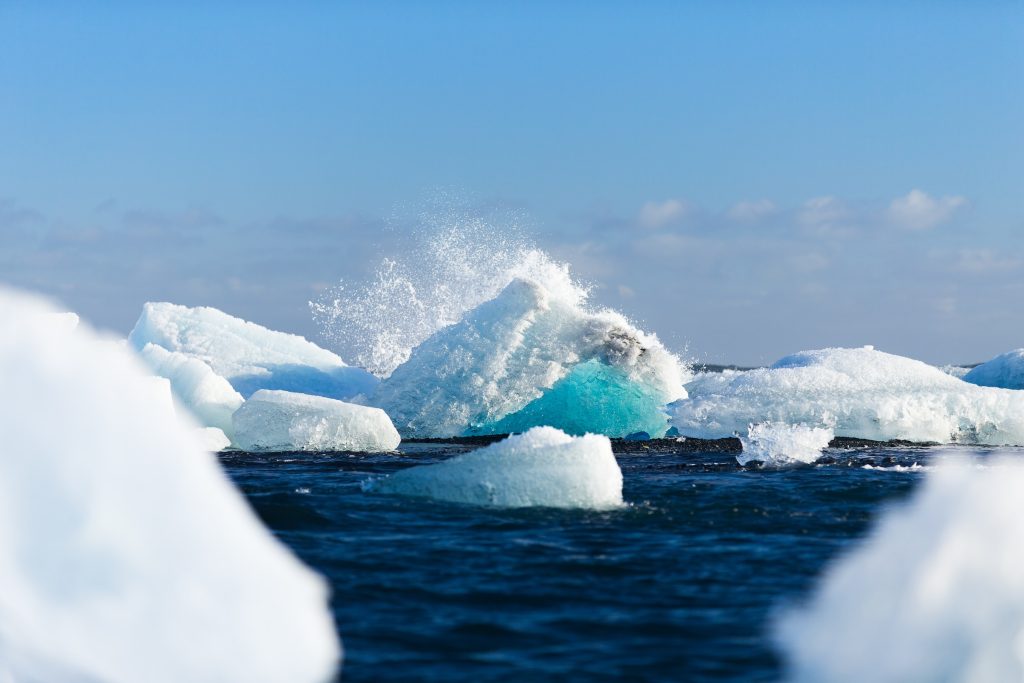
In Pursuit of Arctic Insights: A Journey Amidst Diminishing Ice
ARCTIC OCEAN — As September ushers in cooler temperatures across most of the world, the Arctic region confronts a shrinking ice expanse, reaching its annual lowest stretch. Scientists aboard the German research vessel, Polarstern, embarked on a crucial expedition to unravel the profound implications of this diminishing icy terrain and decode the complexities wrought by global warming.
Merely three years after its unprecedented year-long sojourn across the Central Arctic Ocean, encapsulated within ice, the Polarstern has made its triumphant return to the North Pole. Contrasting its previous journey, the current expedition spans a concise two months, with the ship actively navigating through the ice instead of being trapped within its chilly embrace. Yet, their mission remains unaltered: to comprehend the dynamic shifts in the Central Arctic in the face of an escalating climate crisis.
The Arctic’s sea-ice coverage traditionally contracts during the warmer months, culminating in its narrowest spread by mid-September. Current observations indicate that this year’s shrinkage might rank as the sixth most severe ever recorded. Setting an unfortunate precedent, 2012 observed the most significant contraction, a year when Polarstern was similarly stationed in the Arctic.
At the helm of both expeditions stood Dr. Antje Boetius, a distinguished marine biologist. Reflecting on the current mission, dubbed ArcWatch, she recounted the Polarstern’s revisit to several sites explored a decade earlier. “We’re juxtaposing our observations — from scrutinizing ice thickness, gauging snow coverage, to analyzing plankton composition and ocean chemistry. We’re diving deep to discern the vibrant life that thrives at the ocean bed,” she elaborated in a written correspondence from the vessel.
Assembling over 50 experts, spanning biologists, chemists, and various scientific disciplines, ArcWatch boasts an impressive arsenal of cutting-edge instruments tailored for this voyage. Their toolkit even includes a pair of helicopters to aid their intensive research.
Satellite surveillance, since its inception in 1979, has chronicled a concerning 13% reduction in Arctic ice coverage every decade. Such drastic changes echo the amplified warming experienced in the Arctic, which outpaces global averages. At its zenith in winters past, an expansive 6 million square miles of the Arctic Ocean shimmered under ice. The bleak record low of 2012 witnessed this dip to a mere 1.3 million square miles. Tragically, subsequent years have largely mimicked this pattern.
Fast forward to the present, and the current ice spread hovers at around 1.63 million square miles, teetering on the brink of the year’s minimum, as cited by Colorado’s National Snow and Ice Data Center.
Commandeered by the Alfred Wegener Institute and funded by the German government, the 400-foot, dual-hulled Polarstern plows through the ice. Its 40-member crew, inclusive of a dedicated baker, preserves the cherished tradition of indulging in afternoon cakes. In contrast to the 2020 Mosaic expedition, where researchers rotated periodically, ArcWatch ensures its scientific contingent remains aboard from inception to conclusion.
The ArcWatch initiative also oversees the deployment of buoys and state-of-the-art instruments on the ice. This global endeavor aims to harvest perennial data on weather and oceanic conditions in the remote Central Arctic, a region notoriously inaccessible, particularly during the harsh winters. Equipped with sonar apparatus, this mission is avidly charting the elusive ocean floor across the Arctic’s unexplored expanses.
Dr. Boetius encapsulated the profound wonder of this journey, stating, “Stumbling upon unmapped seamounts, we’re constantly greeted by unexplored terrains and untouched oceanic ecosystems. It’s an exploratory dream, unveiling new discoveries at every juncture.”
Marking her 50th deep-sea exploration, Dr. Boetius fondly reminisced her maiden Arctic voyage as an eager doctoral candidate three decades ago. Reflecting on the sea changes she has witnessed, she poignantly remarked, “The pristine Arctic I once knew has metamorphosed from the icy landscapes to the profound ocean depths. The rapidity of this climate catastrophe was beyond my wildest imagination. Engaging with budding Ph.D. aspirants on board, it’s disheartening to acknowledge that the Arctic they observe today might vanish in their lifetimes.”
In an era where climatic changes are irrefutably tangible, expeditions like ArcWatch stand testament to humanity’s relentless quest for knowledge and the imperative to safeguard our planet’s fragile ecosystems.
©eco-guardians.org